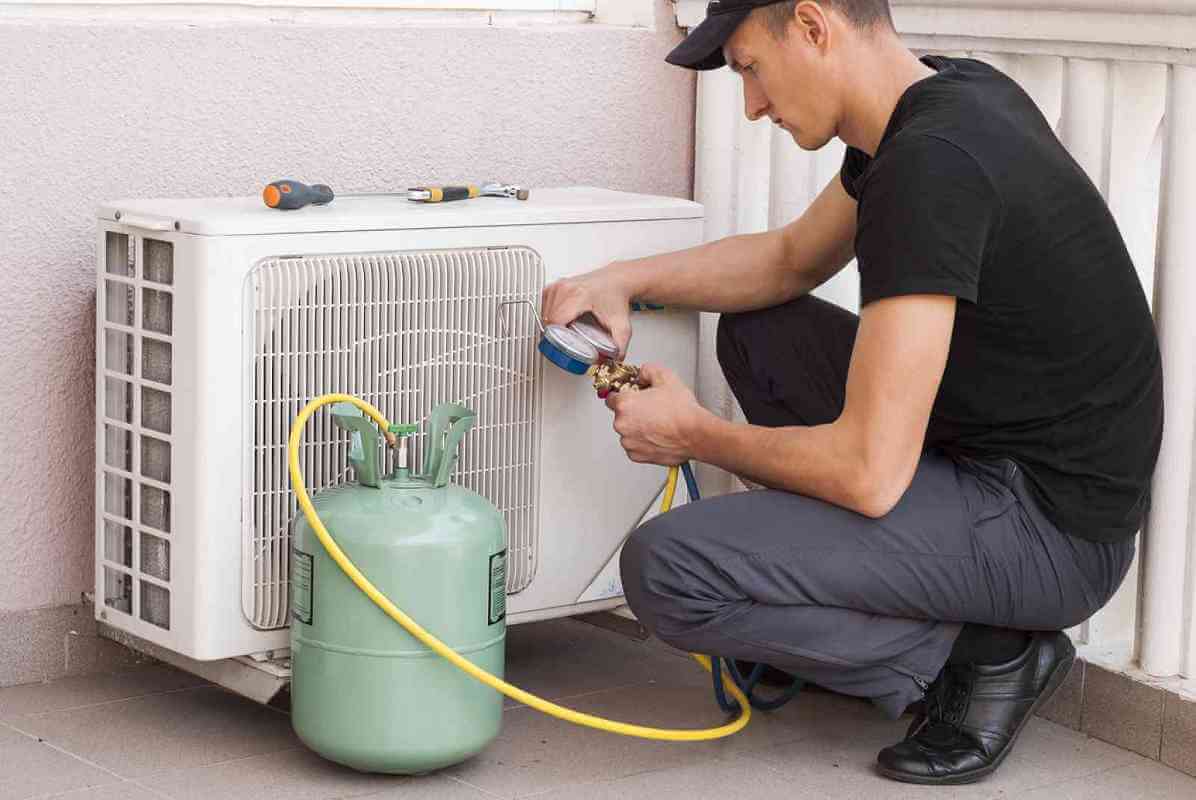For many years Freon, also called R-22 and chlorofluorocarbon (CFC), has been used in the air conditioning units and refrigeration industries. In addition to air conditioners, this coolant is used on freezers, industrial and commercial appliances, in cold storage units and for the transportation of food.
General Motors received the first patent for usable Freon. Later they joined with DuPont to form Kinetic Chemicals with the sole purpose of producing this coolant. DuPont is the company that trademarked the name Freon.
It was in 1974 that a researcher at the University of California theorized that this coolant was destroying the ozone layer. This was followed by several years of research by the National Academy of Sciences and resulted in the United States banning the sale of R-22 in aerosol cans.
It was in 1987 that the Montreal Protocol, an international treaty environment agreement, invoked a phase-out of R-22. Their theory was that Freon harms the ozone layer and its manufacturing releases it into the atmosphere. Freon is still present in older appliances but is being phased out. The U.S. Environmental Protection Agency, and other environmental agencies around the world, agreed to phase out CFCs.
The United States, in following the Montreal Protocol Treaty, agreed to phase out its use of CFCs 95% by 2020. This means that Freon will not be available for replacement if you have an older air conditioner and it breaks down after that date.
It was in 2010 that manufacturers stopped using Freon in their air conditioners and other systems. R-22 can be available for older units until 2020 after which it will only be available from re-cycled units.
If you have an air conditioning unit that was manufactured after 2003, it probably uses a safe coolant. If produced after 2010, you have nothing to worry about, the coolant is safe. You can find the type of coolant being used on your unit’s nameplate.
Because Freon is no longer produced for air conditioning units, the supply on hand for repairs is very limited. As a result, there has been a significant increase in air conditioning repair prices. This increase in costs makes it expensive for both homeowners and business people. It is important to compare the cost of re-charging against the cost of a new unit that has environmentally safe coolant.
Re-charging an older unit with Freon is strongly regulated. It cannot be vented into the atmosphere at any time during installation, retirement or service. Freon in older discarded units must be re-cycled, it cannot be dumped in a landfill.
Air conditioning is a fact of life throughout the United States. Many of these units have been in place for many years. As time goes on, eventually it will be impossible to replace the required coolant. Newer units are designed to be energy savers which means lower utility bills. This means that, over time, it will be possible to re-coup the cost of a new unit.
